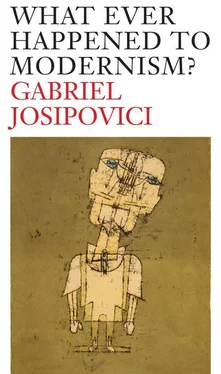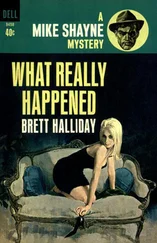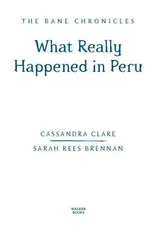In such a situation the very notion of a craft of poetry becomes a mockery. The two lines, ‘I shall wear white flannel trousers, and walk upon the beach’, and ‘I have heard the mermaids singing each to each’ form a perfect rhyming couplet, but the rhyme remains empty because ‘each to each’ turns in on itself and remains, semantically, in a different universe from that of the poet walking on the beach. Hence what follows is a line that cannot have a rhyme because it is a description of solitude and loss: ‘I do not think that they will sing to me.’
Of course the world of so-called culture (what Pound ironically Americanised as Kulchur ) goes on its way, as it always does, blithely unaware that anything is amiss: ‘In the room the women come and go/ Talking of Michelangelo.’ Pope too used the rhyming couplet to signal the disjunction rather than the conjunction between the ideal world and the social world, but in Eliot the disjunction goes deeper because there is no sense that a change in the attitudes of society would set things right, only the bleak acknowledgement that things are not right. After such knowledge, how is lyric poetry any longer possible? (A question that Eliot is asking not only long before Adorno postulated it in the aftermath of Auschwitz, but even before the First World War, for ‘Prufrock’ was written in 1911.)
Yet the final lines do seem to salvage something from the wreck: the speaker will never be able to hear what the mermaids are saying, but, like Wallace Stevens in his great poems of the sea, he manages to convey something of its voice in his image of the ever oncoming and outgoing waves:
I have seen them riding seaward on the waves
Combing the white hair of the waves blown back
When the wind blows the water white and black.
The final triplet, however, reminds us that our sense of what the mermaids are and what they may be saying is a precarious one, which will last only as long as we are reading (and the poet is writing) the poem: when we look up from it, in the end, ‘human voices wake us, and we drown’. We are left with the disintegrating vision and with the insistent and meaningless rhyme of ‘red and brown’/ ‘and we drown’.
Wallace Stevens was Eliot's older contemporary, but where Eliot was already famous by 1922 as the author of The Waste Land and The Sacred Wood , Stevens had not yet published his first volume, Harmonium , and even after the appearance of that wonderful collection in 1923, was not recognised as a major poet till he was in his fifties. With hindsight, though, we can see that the longest poem in Harmonium , ‘The Comedian as the Letter C’, is his version of ‘Prufrock’, his version of the portrait of the artist as a young man in our modern world. This time, though, it is a very American world.
Stevens here, as in so many of his poems, instinctively adopts what Kierkegaard called ‘the dialectic principle’: first you posit this, then you posit its opposite, then you see what happens. Part I, ‘The World Without Imagination’, tells how Crispin, on solid ground, trying to anchor his being in himself, finds himself overwhelmed by the sea:
Sed quaeritur: is this same wig
Of things, this nincompated pedagogue,
Preceptor to the sea? Crispin at sea
Created, in his day, a touch of doubt.
An eye most apt in gelatines and jupes
Berries of villages, a barber's eye,
An eye of land, of simple salad-beds,
Of honest quilts, the eye of Crispin, hung
On porpoises, instead of apricots,
And on silentious porpoises, whose snouts
Dibbled in waves that were mustachios,
Inscrutable hair in an inscrutable world.
This, we feel, is crazy. It's closer to Lewis Carroll and Edward Lear than it is to serious poetry. But, as Elizabeth Sewell showed many years ago, Carroll and Lear have just as much right to be incorporated into the story of nineteenth- and twentieth-century poetry as Mallarmé and Rimbaud. Indeed, they are the playful reverse image of those two poets, and what we have in Stevens, as he struggles to understand the nature of his gift and his vocation, is the coming together of the two traditions. The sign, the word, is always threatening to take off into sound, ‘circulating freely’, as Krauss puts it, and leaving the signified, the semantic content of the word, behind. That is both the problem and the challenge for Stevens; for us the secret is to keep moving.
We are immediately rewarded. ‘Crispin was washed away by magnitude’, we read in the next stanza. He is dissolved in the sea,
nothing left of him,
Except in faint, memorial gesturings,
That were like arms and shoulders in the waves,
Here, something in the rise and fall of wind
That seemed hallucinating horn, and here,
A sunken voice, both of remembering
And of forgetfulness, in alternate strain.
Just so an ancient Crispin was dissolved
The valet in the tempest was annulled.
But just as Friedrich's Rückenfigur stands between us and the annihilated world of mist and sea, so now Crispin rises again as a comic Rückenfigur , protecting us from dissolution. In Part III, ‘Approaching Carolina’, we find him trying to find a balance between annihilation by the sea and the need to settle down and live. It would be easy to forget the sea, to lead a useful life, even to write poems, for the moonlight fills his mind with stories and ideas. Yet Crispin is wary:
How many poems he denied himself
In his observant progress, lesser things
Than the relentless contact he desired.
Moonlight, he senses, is an evasion, ‘mere poetry’, when what he longs for, like Francis Bacon, is the ‘relentless contact’ with reality. Such contact, however, he knows, would bring annihilation with it. But what if he were to forget the annihilating sea and celebrate the ordinary?
A river bore
The vessel inward. Tilting up his nose,
He inhaled the rancid rosin, burly smells
Of dampened lumber, emanations blown
From warehouse doors, the gustiness of ropes,
Decays of sacks, and all the arrant stinks
That helped him round his rude aesthetic out.
This has always been the dream of American writing and it is at the heart of Stevens's friend and contemporary, William Carlos Williams, and there again in Saul Bellow's most American book, The Adventures of Augie March : ‘I am an American, Chicago born — Chicago, that somber city — and go at things as I have taught myself, free-style, and will make the record in my own way: first to knock, first admitted; sometimes an innocent knock, sometimes a not so innocent.’ But anchoring the twentieth-century American drunken boat in ‘rancid rosin, burly smells’ and all the rest turns out, for Crispin, to be as much of a dream as everything else. In Part IV, ‘The Idea of a Colony’, we see him setting up his colony, determined to ‘make new intelligence prevail’, yet at the end he has to confess that
He could not be content with counterfeit,
With masquerade of thought, with hapless words
That must belie the racking masquerade,
With fictive flourishes that preordained
His passion's permit, hang of coat, degree
Of buttons, measure of his salt. Such trash
Might help the blind, not him, serenely sly.
It irked beyond his patience.
Perhaps, then, since he can neither reach the ‘essential prose’ nor do without it, what he has to do is what Donne long ago recommended: ‘He who would truth find/ About must and about must go.’ Sly Crispin accepts that his only role may be that of clown: ‘A clown, perhaps, but an aspiring clown.’ In keeping with this the last two sections are entitled ‘A Nice Shady Home’ and ‘And Daughters with Curls’. He ‘who once planned/ Loquacious columns by the ructive sea’ is now content to build himself a cabin inland, in the American way, and to father four daughters. Is this a sell-out? He concludes, with one of those ‘if’ sentences that gives even as it takes away:
Читать дальше












